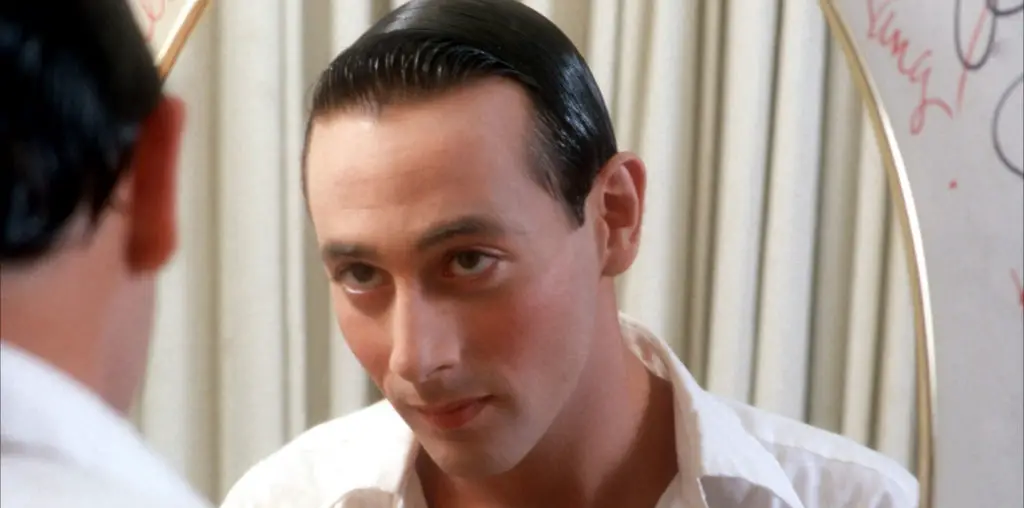
“For the Bible Tells Me So” is a gut-wrenching depiction of what truly defines Family Values.
On the outside, Daniel Karslake’s emotional film appears to be an examination of whether homosexuality is compatible with Biblical scripture. However, it’s really a movie about parents and children defining themselves through life-changing transitions and grueling choices. In the end, Karslake’s brave documentary suggests that the power of individual and family trumps the one-dimensional religious, political, and cultural boxes that society creates.
Karslake’s film follows four American families, each steeped in a history of church and worship, as they come to terms with their children’s emerging gay orientations. We watch parents initially grapple with this reality. Ultimately, we see people making courageous decisions to support each other, even at risk of losing careers, social networks, and the reliable church fellowships that have anchored them throughout their lives.
For some, there was even more at risk. Take New Hampshire’s first openly gay, Bishop-elect Gene Robinson, whose consecration was accompanied by death threats. One anonymous writer warned Robinson and his partner, “I have a bullet for each of your heads when you least expect it.” Looking into the wise old eyes of his mother, we share her pain when she says, “My main concern was someone killing him.”
“For the Bible Tells Me So” introduces us to four gay children of deeply religious parents. There’s Robinson, who attempts to “go straight” during an early life with wife and children before later openly coming out. We meet Chrissy Gephart, daughter of 2004 Presidential Candidate Dick Gephart, who also married a straight partner before declaring herself a lesbian and helping her politician-father on the campaign trail. College student Tonia Poteat also joins the mix, with parents who establish an uneasy truce in which love for their daughter can exist alongside a firm non-acceptance of her sexual identity. Jake Reitan comes out in high school, transforming himself into an assertive warrior for gay rights.
Each of these stories carries considerable dramatic heft. Woven together, however, they give rise to a heart-tugging wave of emotion. Robinson’s smiling, amiable mother and father, for example, are impossible not to adore. They educate themselves to their son’s orientation, knowing full well that his coming out will bring discrimination and risk. It’s one thing to accept something you’re acquainted with. It’s quite another to push for an understanding of something unfamiliar – especially as an older couple expecting to enjoy the comfortable embrace of their retirement years.
Okay – so these devoted parents love their gay children. But what of the film’s larger promise to explore scriptural viewpoints on homosexuality, as presented in the Good Book? Religious authorities including Archbishop Desmond Tutu, Rabbi Steven Greenberg, and Reverend Dr. Mel White present an alternative to fundamentalist, fire and brimstone interpretations.
Homosexuality is indeed labeled an “abomination” in the Bible. However, as Rabbi Brian Zachary Mayer reminds us, the term also applied to various other activities deemed against the traditions or rituals of the times. “A few verses above and below it says you shouldn’t plant two different seeds in the same hole, you shouldn’t commingle your crops.” Also discouraged is the wearing of linen and wool together, and the eating of shrimp and rabbit. The list goes on.
According to Reverend Susan Sparks of the American Baptist Church, these scriptures reflect the particular historical context in which they were written. “That particular section on a man not lying with a man goes to procreation. At the time, the Hebrew people understood that male seed was actually all of nascent life contained right there – women actually had nothing to do with the birth except for just incubation, so that particular section was about saving seed. Saving seed only to procreate so the national could grow.”
“For the Bible Tells Me So” also explores the dramatic clash between views of gayness as a biologically set orientation or a lifestyle choice. Key characters share frustration over Dr. James Dobson’s “Focus on the Family” organization, which they say espouses a view of homosexuality as a preventable disorder that can be treated with “reparative therapy.”
Herein lies the question at the heart of Karslake’s film: Is it possible to maintain both religious and gay identities simultaneously? Can the church-raised children presented in “For the Bible Tells Me So” possibly find common ground with angry, hyperventilating preachers denouncing homosexuality from their podiums? We watch a red-faced Jimmy Swaggart stammer, “It’s an A-BOM-NATION.” A pie is hurled into the face of anti-gay activist Anita Bryant. Protesters wield “God Hates F**s” signs. Clearly, the verdict is still out.
Is “For the Bible Tells Me So” merely re-visiting an ongoing controversy that will continue until the end of time? Perhaps so – but tackling this volatile, irreconcilable theme only makes the film’s family portraits more poignant. It takes guts to support a gay family member through such polarizing social climate. There’s a frightening, almost tangible sense of real risks being taken, as each family takes its own, unique stand.
Karslake steers us through both the tragic wreckage of lost lives and the transforming forces of renewal, en route to a shattering, lump-in-throat finale. To describe the outcomes of each family’s challenging emotional pilgrimage would be to spoil the film’s rich, hard-earned power.
Whether or not your personal religious and political stances on homosexuality are influenced by Karslake’s film, you’re sure to be moved by its portraits of unbreakable family ties. Like “Murderball,” “Wordplay,” and “Spellbound,” “For the Bible Tells Me So” skillfully dives beneath the constraints of its title theme to find deeper treasures. The faces of its mothers, daughters, fathers, and sons remind us that Family Values are still alive and well.

